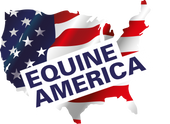Electrolytes - all you need to know!

What are electrolytes?
Electrolytes are key macro-minerals required by the body for metabolic activities and are essential for the normal function of all cells. Examples of the important roles electrolytes play in the body include muscle contraction and transmission of nerve impulses.
Electrolytes are lost in sweat. Sodium, chloride and potassium are lost in the greatest quantities in sweat, with calcium, magnesium and other trace minerals being lost in smaller quantities.
When and why should I use them?
Maintaining hydration and replacing lost electrolytes is important not only for competition horses, but all horses and ponies who are sweating after work or travel. Don’t forget during the winter it can be hard to spot sweating in a clipped horse as the wind will cause the sweat to evaporate quickly, we would recommend any horses working hard in winter have electrolytes added to their daily ration.
An increase in body temperature, either due to exercise, travel or hot weather will cause the horse to sweat. Evaporation of the sweat helps the horse to cool down and regulate their body temperature.
A horse in moderate work, trotting and cantering, can lose as much as 5-7 litres of fluid and 50-70g of electrolytes in an hour as sweat. This can increase up to 15 litres of sweat with increasing exercise intensity and duration, or hot climatic temperature and humidity.
Just offering water to a dehydrated horse is not enough, they need electrolytes too. Unlike human sweat which is isotonic, horse sweat is hypertonic, meaning it contains a higher concentration of electrolytes than his other body fluids. These electrolytes need replacing at the correct concentrations to ensure that the desire to drink is maintained, so fluid balance and electrolyte losses can be restored, to promote recovery, and ensure continued optimum performance. If the horse just drinks water, without replacing the electrolytes the body will turn off the thirst mechanism and the horse will not want to drink and remain dehydrated. Just 1% dehydration can cause a loss in performance, but severe dehydration can be life threatening, so prevention is key.
How can I tell if my horse is dehydrated?
There are a few ways this can be done, firstly monitor their urine output. Dark urine or an overall lack of urine can indicate dehydration. Another test is to look at the gums, including capillary refill test. Please ensure your safety when looking in a horses mouth! Gently lift the lip and look at the gums, they should be salmon pink and moist. If you then press on the gum with a finger and lift off, count the time it takes to return from white back to pink, ideally this should be less than 2 seconds. Longer than 2 seconds can indicate dehydration. Dark pink or red, dry gums can also be an indicator of dehydration. The skin pinch test is another test but this is not always reliable. To use this test pinch a bit of skin on the neck, release and it should ping back immediately. By the time the skin stays tented dehydration is often quite advanced and we would recommend the other methods of checking hydration first.
Which form of electrolyte should I feed? Powder, Paste or Solution?
We now have Apple Lytes in 3 forms – Powder, Paste and Solution. All our Apple Lytes contain Sodium, Potassium and Chloride as well as Calcium and Magnesium in a carefully balanced formulation to provide optimum levels, in a bioavailable form.
Which Apple Lytes you feed is personal preference and will depend on your individual horse and circumstances. For example our new solution is particularly easy to feed if they are fed cubes/ nuts rather than a mix.
The paste comes in a convenient 30ml syringe for ease of administration, ideal for use when travelling and at competitions, to start replenishing the key electrolytes.
The powder is ideal for regular daily use.
All are very palatable with an appetising apple and cherry flavour, suitable for even the fussiest eater!
How do I feed electrolytes? Can I add them to water?
We recommend adding Apple Lytes Powder or Solution to feed, rather than water. Adding them to water risks putting the horse off their drink and it is easier to ensure they have received the full serving in feed. If you do wish to add to water, always ensure they have a fresh plain source of water in addition to that containing electrolytes.
Apple Lytes Paste should not be administered on an empty stomach but should be given at appropriate intervals during long distance travel. Following exertion, once cooled and calm, the horse should be offered a small fibre feed or access to forage, before administering Apple Lytes Paste by syringe.
Clean fresh water should always be available.
The ingredients list contains dextrose or sorbitol? Is this ok for laminitis prone ponies?
Yes, all 3 formulations are high in electrolytes and low in sugar and the level of dextrose or sorbitol is considered safe for all horses and ponies at the serving rate on the label. For advice on individual cases, we recommend speaking to your Vet or Nutritionist.
Are they ‘legal’?
Yes, Apple Lytes are BETA NOPS and UFAS accredited, ensuring our products do not contain prohibited substances and are suitable for horses competing under FEI regulations and the Rules of Racing.

